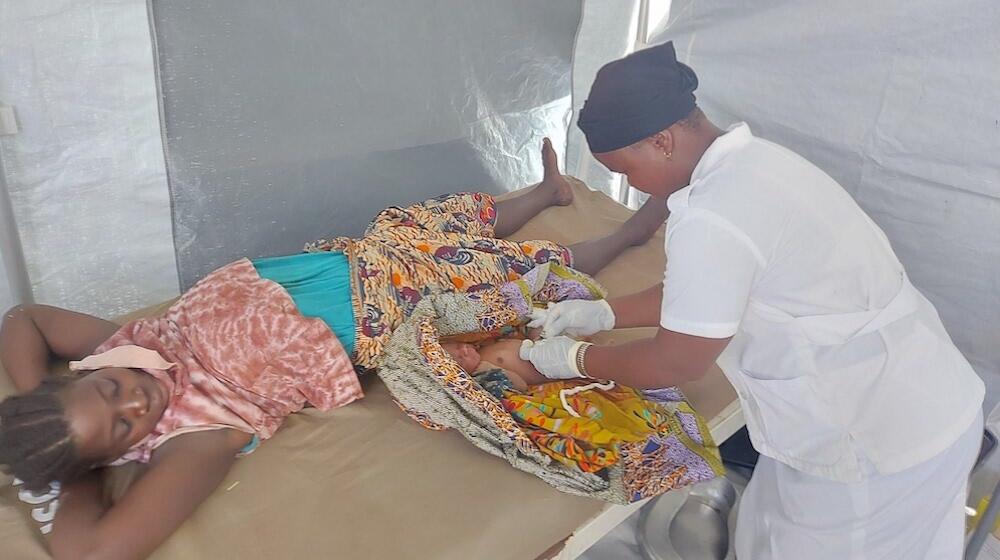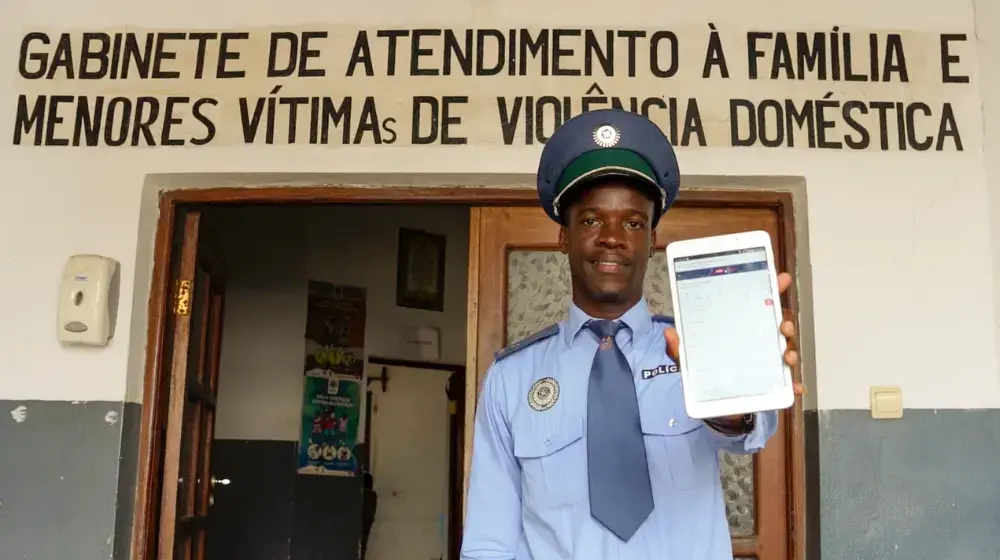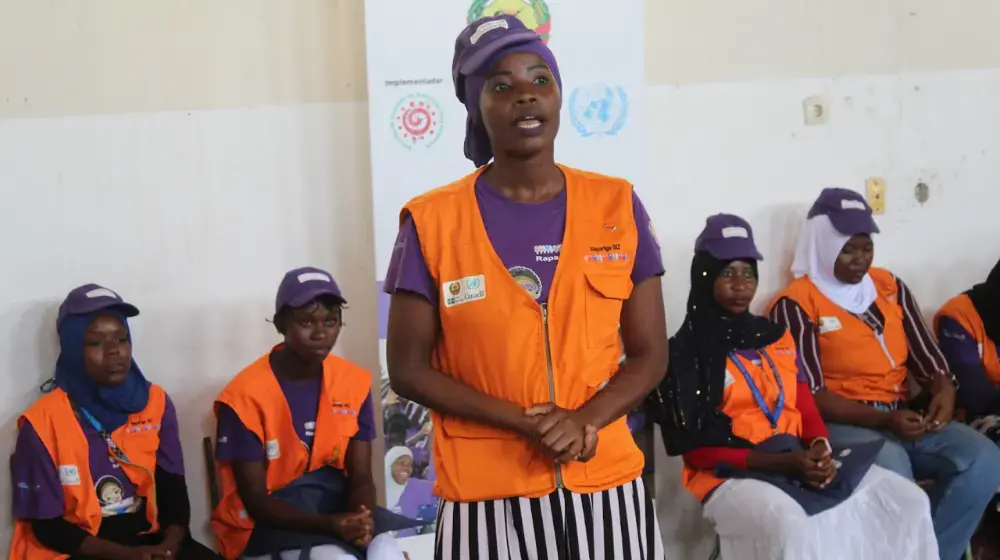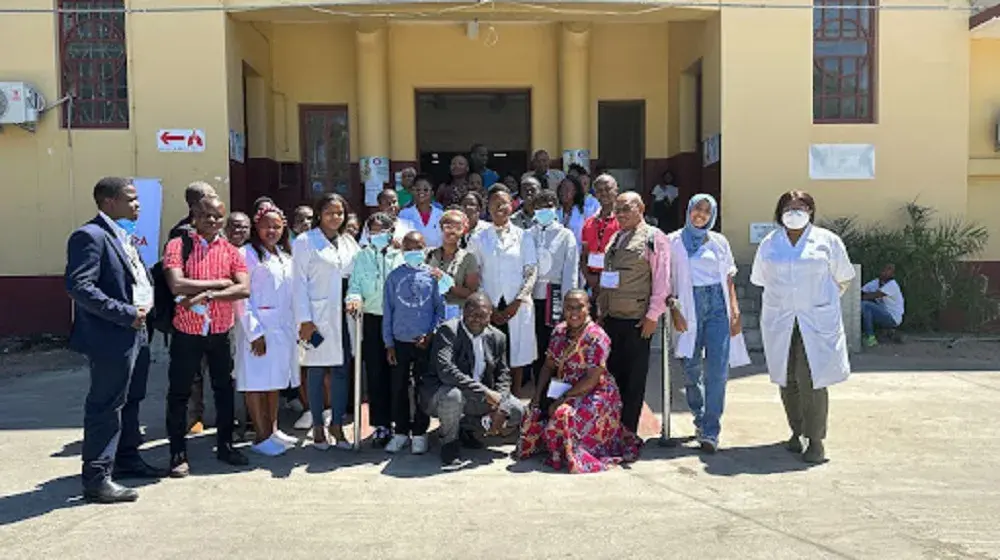ZAMBEZIA, Mozambique - Days after record-breaking Cyclone Freddy made its second landfall in Mozambique, 23-year-old Diana Dino from the hardest hit province of Zambezia went to a nearby health center for a routine prenatal care appointment. She was due to give birth any day. What she found was that services had stopped as the Cyclone damaged the health unit’s infrastructure. With limited options, Diana was left with no choice but to give birth at home.
Just one day later, however, Diana heard that health services in her community were resuming through newly-installed tents provided by the Government of Mozambique, with support from UNFPA, the United Nations Population Fund. These tents would enable much-needed maternal and child health services in the area to continue.
Proudly being the first patient attended to within the tents, Diana and her newborn son received postnatal care from health care providers. "Fortunately, the mother and baby are in good health," said nurse Lica Estevão, adding: "With the tents installed, we have already started to see an increase in women seeking health services”.
In situations worldwide, and in times of crisis, skilled birth attendance and emergency obstetric care may become unavailable, exacerbating the vulnerability of pregnant women. This is particularly the risk for the more than 31,100 women currently pregnant who are impacted by the triple crisis of Cyclone Freddy, floods and cholera.
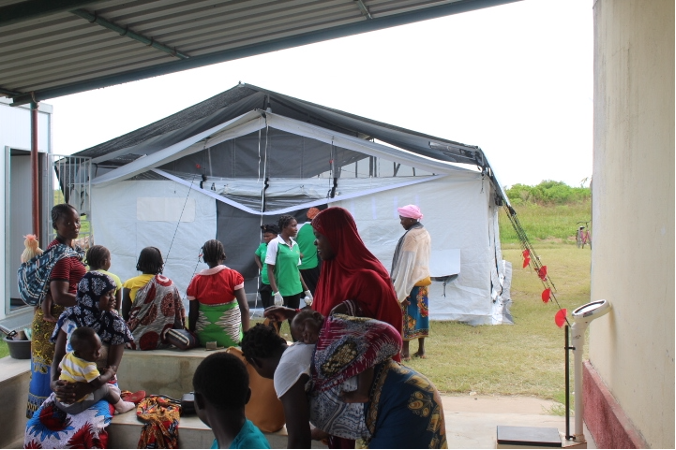
through the installation of tents in Zambézia province,
Mozambique Photo: UNFPA Mozambique/Helder Xavier
In Zambezia province alone, 741,136 people have been impacted (as of 25 April 2023), including thousands of women who will deliver within the next month and urgently need access to obstetric care. Working closely with the Government, UNFPA procured and installed such tents, enabling women and girls to access timely, life-saving services in privacy.
Urgent need for family planning services
Nearby, the Cyclone’s impact also forced another health center to suspend many services. In response, UNFPA’s installed tents served as a maternity room for the health center, with the other room offering contraceptives and sexual and reproductive health services.
Inês Moisés (aged 28) benefitted from such tents. Though she missed her usual routine of contraception injection by two weeks, she shares that,
"When I heard that tents were set up, I rushed to get my contraceptive.”
With one in five women of reproductive age in Mozambique who want to avoid or space a pregnancy not using any form of family planning (IMASIDA 2015), ensuring continued access to contraception is critical - particularly in a natural disaster.
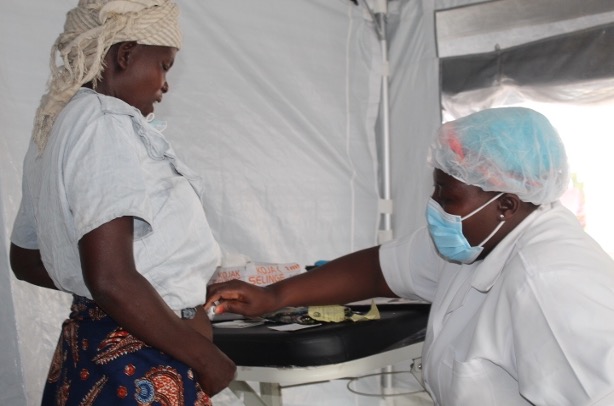
of family planning Photo: UNFPA Mozambique/Helder Xavier
Tents are a ‘breath of fresh air’
"We have been working hard to ensure they [women and girls] do not face unwanted pregnancies," shares nurse Rosana Henriques. She adds that the tents are a "breath of fresh air for her work" because the flow of women and girls seeking sexual and reproductive health services initially reduced because of the lack of privacy and services in the damaged centers.
That has now changed as the number of women and girls seeking services increases. As of mid-April, UNFPA has set up 17 tents to enable immediate and safe access to health services for more than 20,000 women and girls.
To continue meeting the needs of those most vulnerable, UNFPA urgently seeks USD $5 million within the Humanitarian Response Plan addendum to support 456,447 people, of which 109,547 are women of reproductive age, to ensure the continuity of life-saving health and GBV prevention and response services.
As childbirth and pregnancies do not stop in emergencies, funding support will enable women like Diana and Inês to receive the timely services they need to make informed choices over their bodies and reproductive health.

